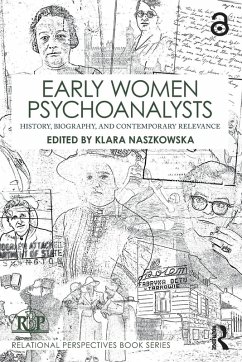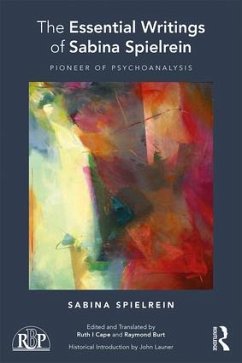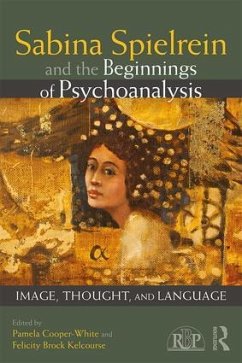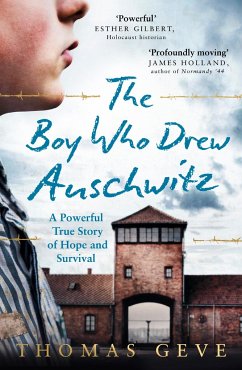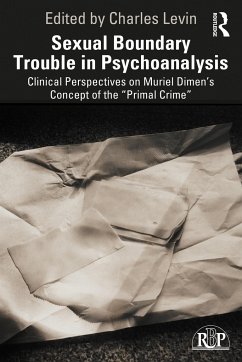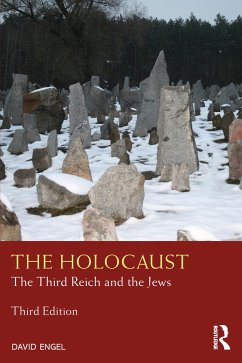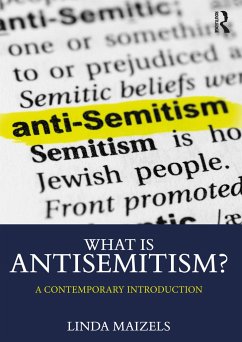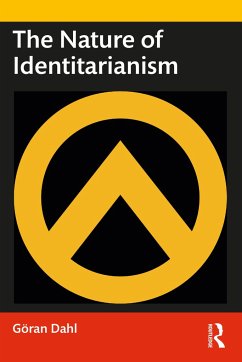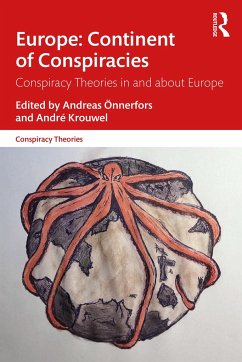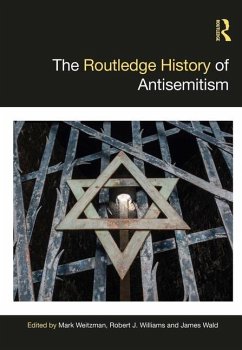
Early Women Psychoanalysts
History, Biography, and Contemporary Relevance
Herausgegeben: Naszkowska, Klara
Versandkostenfrei!
Versandfertig in 6-10 Tagen
149,99 €
inkl. MwSt.

PAYBACK Punkte
75 °P sammeln!
Each life story is unique, yet each also entwines with other stories, sharing recurring themes linked to issues of gender, Jewishness, women's education, politics, and migration.The book's first section discusses relatively known analysts such as Sabina Spielrein, Lou Andreas-Salomé, and Beata Rank, remembered largely as someone's wife, lover, or muse; and the second part sheds light on women such as Margarethe Hilferding, Tatiana Rosenthal, and Erzsébet Farkas, who took strong political stances. In the third section, the biographies of lesser-known analysts like Ludwika Karpinska-Woyczynska...
Each life story is unique, yet each also entwines with other stories, sharing recurring themes linked to issues of gender, Jewishness, women's education, politics, and migration.
The book's first section discusses relatively known analysts such as Sabina Spielrein, Lou Andreas-Salomé, and Beata Rank, remembered largely as someone's wife, lover, or muse; and the second part sheds light on women such as Margarethe Hilferding, Tatiana Rosenthal, and Erzsébet Farkas, who took strong political stances. In the third section, the biographies of lesser-known analysts like Ludwika Karpinska-Woyczynska, Nic Waal, Barbara Low, and Vilma Kovács are discussed in the context of their importance for the early Freudian movement; and in the final section, the lives of Eugenia Sokolnicka, Sophie Morgenstern, Alberta Szalita, and Olga Wermer are examined in relation to migration and exile, trauma, loss, and memory.
With a clear focus upon the continued importance of these women for psychoanalytic theory and practice, as well as discussion that engages with pertinent issues such as gendered discrimination, inhumane immigration laws, and antisemitism, this book is an important reading for students, scholars, and practitioners of psychoanalysis, as well as those involved in gender and women's studies, and Jewish and Holocaust studies.
The book's first section discusses relatively known analysts such as Sabina Spielrein, Lou Andreas-Salomé, and Beata Rank, remembered largely as someone's wife, lover, or muse; and the second part sheds light on women such as Margarethe Hilferding, Tatiana Rosenthal, and Erzsébet Farkas, who took strong political stances. In the third section, the biographies of lesser-known analysts like Ludwika Karpinska-Woyczynska, Nic Waal, Barbara Low, and Vilma Kovács are discussed in the context of their importance for the early Freudian movement; and in the final section, the lives of Eugenia Sokolnicka, Sophie Morgenstern, Alberta Szalita, and Olga Wermer are examined in relation to migration and exile, trauma, loss, and memory.
With a clear focus upon the continued importance of these women for psychoanalytic theory and practice, as well as discussion that engages with pertinent issues such as gendered discrimination, inhumane immigration laws, and antisemitism, this book is an important reading for students, scholars, and practitioners of psychoanalysis, as well as those involved in gender and women's studies, and Jewish and Holocaust studies.





